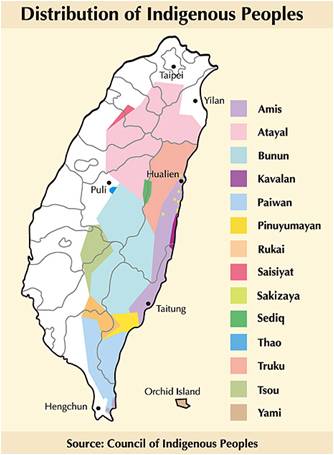- Location
- Western New York
And it's done! Well, except for the part where I consult Chinese speakers and watch them weep at what Google Translate has wrought, anyway.
豐玉省 Fengyusheng Abundant Jade Province
Prefectures
虎鯨 Hujing (Killer Whale) - Vancouver Island - Victoria
吳东 Wudong (Eastern Wu) - Washington - Port Madison
海東 Haidong (East of the Sea) - Washington/Oregon 1 - Astoria
支努干 Zhinugan (Chinook)- Washington/Oregon 2 - Tri-Cities, Washington
隐湾 Yinwan (Hidden Bay) - Oregon/California 1 - Humboldt Bay
海獺湾 Haitawan (Sea Otter Bay) - northern California - Santa Clara
葡萄谷 Putaogu (Grape Valley) - central California - Stockton
南谷 Nangu (South of the Valley) - central-southern California - Los Angeles
大爪 Dazhao (Great Claw)- San Diego down through Baja - San Diego
Tier 1 cities
天湾 Tianwan (Heavenly Bay) - Santa Clara
神京 Shenjing (Divine Capital) - Victoria, BC
薩利磯 Saliji (Salish Rock) Port Madison, Washington (replacing Seattle)
龜峡 Guixia (Turtle Gorge) Vancouver, Washington (replacing Portland)
北谷 Beigu (North Valley) Stockton, California
Tier 2 cities
鄴 Ye - San Francisco
啊晚一 Awanyi (Awani-wi) - San Rafael
玉口 Yukou (Jade Mouth) - Astoria
斯波坎 Sibokan - Spokane
間河 Jianhe (Between Rivers) Sacramento
湾山 Wanshan (Bay Hill) - Oakland
三河 Sanhe (Three Rivers) - Tri-Cities
隐湾 Yinwan (Hidden Bay) - Humboldt Bay
过赛 Quosai (Kosa'aay) - San Diego
譙 Qiao - Los Angeles
廣陵 Guangling - Ensenada, Mexico
睦灣 Muwan (Tranquil Bay) - La Paz, Mexico
流域门 Liuyumen (Watershed Gate) - Chico, California
草河 Caohe (Grass River) - Albany, Oregon
薩利湾 Saliwan (Salish Bay) - Bellingham, Washington
还薄丽 Haibaoli (Hibulb)- Everett, Washington
桑吉 Sangji (Songhee) - Sooke, BC
壽春 Shouchun - Port Orchard
西海 Xihai - Tacoma
熊港 Xionggang (Bear Harbor) - Olympia
歷陽 Liyang - Aberdeen
沃河 Wohe (Fertile River) - Hood River
蒲坂 Puban - Salem
濟陽 Jiyang - Albany
氣饭 Qifan - Eugene
雞澤 Jize - Roseburg
沙斯塔 Shasita (Shasta) - Grants Pass
朏滩 Feitan (Crescent Beach) - Crescent City
零陵 Lingling - Klamath
哦羅你 Oluoni (Ohlone) - Santa Cruz
蝶濱 Diebin (Butterfly Shore) - Marina
焦油岸 Jiaoyouan (Tar Shore) - Pismo Beach
五村 Wucun (Five Villages) - Santa Barbara
豐玉省 Fengyusheng Abundant Jade Province
Prefectures
虎鯨 Hujing (Killer Whale) - Vancouver Island - Victoria
吳东 Wudong (Eastern Wu) - Washington - Port Madison
海東 Haidong (East of the Sea) - Washington/Oregon 1 - Astoria
支努干 Zhinugan (Chinook)- Washington/Oregon 2 - Tri-Cities, Washington
隐湾 Yinwan (Hidden Bay) - Oregon/California 1 - Humboldt Bay
海獺湾 Haitawan (Sea Otter Bay) - northern California - Santa Clara
葡萄谷 Putaogu (Grape Valley) - central California - Stockton
南谷 Nangu (South of the Valley) - central-southern California - Los Angeles
大爪 Dazhao (Great Claw)- San Diego down through Baja - San Diego
Tier 1 cities
天湾 Tianwan (Heavenly Bay) - Santa Clara
神京 Shenjing (Divine Capital) - Victoria, BC
薩利磯 Saliji (Salish Rock) Port Madison, Washington (replacing Seattle)
龜峡 Guixia (Turtle Gorge) Vancouver, Washington (replacing Portland)
北谷 Beigu (North Valley) Stockton, California
Tier 2 cities
鄴 Ye - San Francisco
啊晚一 Awanyi (Awani-wi) - San Rafael
玉口 Yukou (Jade Mouth) - Astoria
斯波坎 Sibokan - Spokane
間河 Jianhe (Between Rivers) Sacramento
湾山 Wanshan (Bay Hill) - Oakland
三河 Sanhe (Three Rivers) - Tri-Cities
隐湾 Yinwan (Hidden Bay) - Humboldt Bay
过赛 Quosai (Kosa'aay) - San Diego
譙 Qiao - Los Angeles
廣陵 Guangling - Ensenada, Mexico
睦灣 Muwan (Tranquil Bay) - La Paz, Mexico
流域门 Liuyumen (Watershed Gate) - Chico, California
草河 Caohe (Grass River) - Albany, Oregon
薩利湾 Saliwan (Salish Bay) - Bellingham, Washington
还薄丽 Haibaoli (Hibulb)- Everett, Washington
桑吉 Sangji (Songhee) - Sooke, BC
壽春 Shouchun - Port Orchard
西海 Xihai - Tacoma
熊港 Xionggang (Bear Harbor) - Olympia
歷陽 Liyang - Aberdeen
沃河 Wohe (Fertile River) - Hood River
蒲坂 Puban - Salem
濟陽 Jiyang - Albany
氣饭 Qifan - Eugene
雞澤 Jize - Roseburg
沙斯塔 Shasita (Shasta) - Grants Pass
朏滩 Feitan (Crescent Beach) - Crescent City
零陵 Lingling - Klamath
哦羅你 Oluoni (Ohlone) - Santa Cruz
蝶濱 Diebin (Butterfly Shore) - Marina
焦油岸 Jiaoyouan (Tar Shore) - Pismo Beach
五村 Wucun (Five Villages) - Santa Barbara


